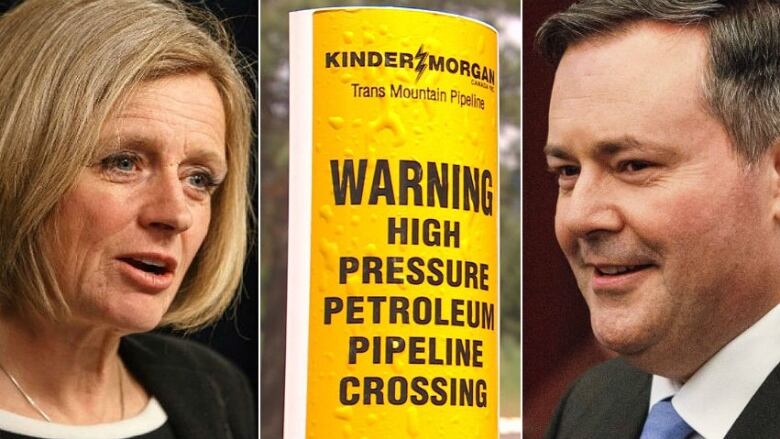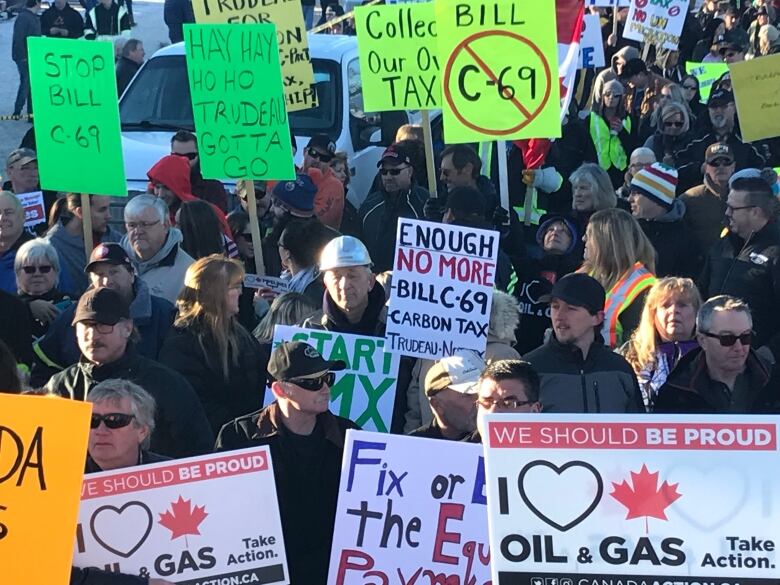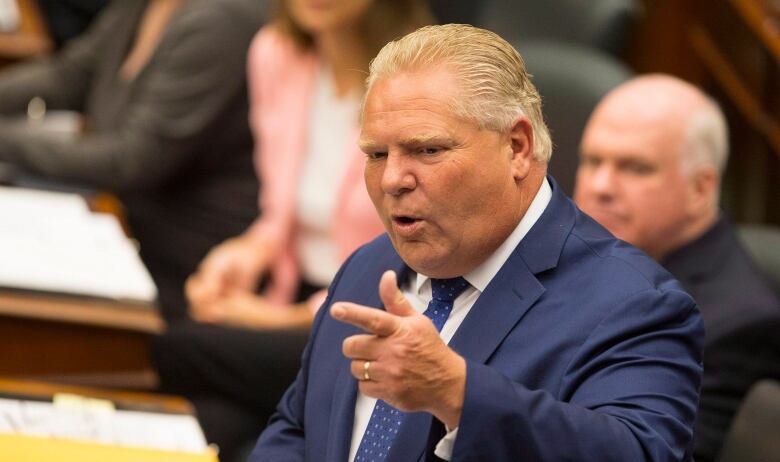While anger is a great strategic tool for winning elections, it is a poor strategy for governing
How to transition from an angry campaign into a cool-headed government

This story was originally published Jan. 3.
Anger is a very powerful political emotion.
Albertans are angry and there's an election on the horizon. This poses a dilemma to political parties and political movements.
When the electorate is angry, a savvy leader can harness that anger, leverage it, channel it during a political campaign and win an election night victory. But as is often asked in political science circles, what aboutthe day after?
While anger is a great strategic tool for winning elections, it is a poor strategy for governing. It can lead to short term fixes, foolish promises, bad choices, inflamed tensions, creation of enemies. All this can actually engender even more anger.
As a campaign strategy, voter frustrations can be channeled intothrowing the bums out.Or it can be turned into an us vs. themscenario aleveraging of an external enemy by a party in power.
Over the next few months, all political parties in Alberta will be faced with decisions on how (and to what degree) to incorporate our province's deep resentments, our anger and in some cases our rage, into political rhetoric.
This is one challenge. Another is how to then transition from an angry campaign into a cool-headed government.
The NDP and anger
In 2015 Albertans were angry at an entitled Progressive Conservative government in power too long.
Two episodes crystallized that anger: the floor crossing from the Wildrose opposition to the PCs in December 2014, and an early election call several months later.
Then, we had a look-in-the-mirrormoment which infuriated many. Voters did not initially know how to channel their anger they were often undecided in whether to vote for the left-wing NDP or the right-wing Wildrose.
Obviously this wasn't a choice on ideology, it was a choice based on who was best positioned to defeat the PCs. In the end, Albertans took out their anger by electing the NDP.
In 2015, the NDP was able to capitalize on Albertans' anger and win the election.
But, whether you like their policies or not, they have not governed on anger. They successfully transitioned from an angry campaign to a dispassionate, almost positive, governing style. While times were tough, there was a sense of optimism in how the NDP governed.
- OPINION |Notley is riding a wave of goodwill and can capitalize on that leading into the next election
A major reason why the NDP was able to make the transition, is while they took advantage of Albertans' anger, they did not amp it up during the campaign.
Albertans are even more angry right now.
Notley has tried to channel that anger.
In late August 2018, the Federal Court of Appeal overturned the approval of the Trans Mountain Pipeline. In response, Notley heldan emergency television address where she blamed the federal government.
Over the next four months, Notley frequently criticized the federal government over its failure to appeal the Federal Court of Appeal's decision to the Supreme Court.
She also criticizedBill C-69, the failure to help Alberta buy railcars, and its decision to ban tanker traffic off the northern coast of B.C. Representatives of the NDP government have even spoken at the pro-pipeline demonstrations.
But they haven't leveraged much out of this.
In most cases, angrily standing up to Ottawa would be a winning strategy in Alberta. However, most Albertans do not buy Notley's anger towardTrudeau.
She's been pretty careful not to name names when it comes to defending Alberta interests. There haven't been a lot of proper nouns. It's all about fighting for Alberta against some nebulous collection of harmful events.
Even if Notley did make Trudeau the focus,Albertans wouldn't buy it because of the last three years of a close relationship between her andthe prime minister. For example, it is highly doubtful that the Trudeau government would have brought in a federal carbon tax if the Notley government had not already put one in place.

A second reason is that anger just does not fit Notley's personality. So it could play out as inauthentic if she made too much of it during an election campaign.
So even though the NDP have governed without rancour themselves, the current climate of resentment and anger in Alberta isn't something they can effectively leverage.
The UCP opposition could and will. But that might create its own problems.
The UCP and anger
The economy remains stagnant with high unemployment, increasing levels of debt, bankruptciesand uncertainty. But more importantly, Albertans feel let down by the rest of Canada.
This has led to the last month being one of a long series of high-profile public protests across the province against the provincial Notley government, the federal Trudeau government, a lack of progress on pipelines, Bill C-69, carbon taxes, immigration, the United Nationsand many other issues.
Jason Kenney and the United Conservative Party (UCP) have been much more effective than Notley and the NDP at harnessing that anger. Kenney and other UCP MLAs and candidates often speak at these protest rallies. Their rhetoric matches, and even exceeds, the anger that is present in the electorate.
Kenney promises to deliver on that anger.
He promises that if elected, he will initiate a summer of repealand remove the most contentious items of the NDP agenda. The consumer-based carbon tax would be the first bill, but other pieces of NDP legislation would also be repealed.
The challenge Kenney faces is while he is going to campaign, and likely win, on anger, he is also promising to govern on anger.
For example, Kenney is promising a full confrontation with the Trudeau government.
Alberta will join Saskatchewan and Ontario in their lawsuit against the federal carbon tax. There will be a referendum in Alberta on the federal equalization program. And they will actively campaign against him in the fall 2019 federal election.
Kenney is promising the biggest battle with Ottawa since the early 1980s and the repatriation of the constitution and NEP.
In addition, Kenney promises a fight-backstrategy on behalf of Alberta's energy sector.
This would entail, among other things, establishing a well-funded war roomthat would respond in real time to any perceived lies or misrepresentations about Alberta's energy sector. It would also involve his pledge to create a legal action fund to support groups who want to sue environmental organizations, and investigate environmental groups and their possible violation of charitable status.
However, governing through anger is likely to be ineffective and might actually make things worse. Let's look at a couple of examples.
The problem with anger
Donald Trump became the U.S. president in 2016 on a campaign of anger. There was anger in the land, primarily of white working class men in rural and suburban counties who felt left behind in the changing economy and society. They lashed out at trade deals, large corporations, immigrantsand foreign countries. They were also angry at Hillary Clinton who epitomized the political establishment. Trump didn't just exploit this anger, he stoked it. Trump didn't just plan to defeat Clinton, he would "lock her up!"
Winning through anger worked, but Trump stayed angry, and Americans have found that governing through anger is disastrous. Even as Trump tried implementing his agenda by withdrawing or renegotiating trade agreements, building a wall along the Mexican border, and putting a travel ban on immigrants from some Muslim-dominated countries, he is often distracted by fighting enemies.
The enemies that an angry Trump lashes out at through Twitter include the "fake news media," the Democrats, never-Trumper Republicans, foreign leaders, NFL players, the FBI, the intelligence community, and especially the Mueller investigation.
The result has been a presidency that has seen few successes, constant turnover in his cabinet and staff, spiraling government debt, trade wars, government shutdownsand multiple investigations.
Closer to home, Doug Ford was elected Ontario premier in spring 2018.
He won on anger toward Premier Kathleen Wynne and the incumbent Liberal government.

Like Trump, Ford didn't just capitalize on Ontarians' anger he inflamed it.
Also, like Trump, Ford has been governing angry.
In just a few months, Ford has been involved in legal fights (including an unnecessary use of the notwithstanding clause), scandals involving the provincial police, Ontario Power Generationand Hydro One, and confrontations with the Trudeau government. This has taken away from his ability to successfully implement an agenda of lower taxes, smaller debtand a less intrusive government.
Alberta needs to avoid this.
Government, at least the most effective kind of democratic government, is a process of negotiation, of reconciling a wide variety of passions, needs, wants, expectations.
It takes nuance, a willingness to bend and the making of unlikely bedfellows. Relationships must be built, concessions given. Priorities need to be mutable dependent on opportunity and situation.
Inflexibility leads to entrenchment of opposition the alienation of potential allies. It makes it damn hard to get things done. Particularly in a federation with multiple orders of government that have different and yet similar jurisdictions.
Also, once an electorate is whipped up, it becomes difficult to implement their expectations especially if those expectations are unclear, conflicting, aimed at multiple goals, or are unrealistic.
Having made political promises, having set out goals, any failure to meet those goals by a new government will further inflame the anger of the population.
Anger then feeds itself, and divides people. As we are currently seeing around the world, this doesn't make for effective government.
It's not necessary to surrender one's ambitions. It's not necessary to always govern from a soft middleor complacently withdraw from conflict. You don't have to be steamrolled by opponents and be endlessly understanding or give up your values. Hell no.
By all means fight the good fight. If the people are angryand their cause righteous, then it is only legitimate to articulate and represent their concerns.
But once you've won public office, the most effective wayto succeed in your political ambitionsis to lead with a cool head.
Alberta in the future
For a Kenney government, however, the question is not whether he will make such a transition. He won't, because he doesn't want to.
The real question is whether anger will work as a governing strategy.
Will attacks on the Trudeau government, the B.C. government, the Quebec government and environmentalists make it easier or harder to get a pipeline built to tidewater?
Will attacks on some particular large corporations, environmental groups, academics who disagree with some of his policiesand people who don't share his values distract from implementing his agenda?
Stay tuned.
This column is an opinion. For more information about our commentary section, please read this editor's blog and our FAQ.
Calgary: The Road Ahead is CBC Calgary's special focus on our city as it passes through the crucible of the downturn: the challenges we face, and the possible solutions as we explore what kind of Calgary we want to create. Have an idea? Email us at calgarytheroadahead@cbc.ca
More stories from the series:













_(720p).jpg)


 OFFICIAL HD MUSIC VIDEO.jpg)
.jpg)



























































































